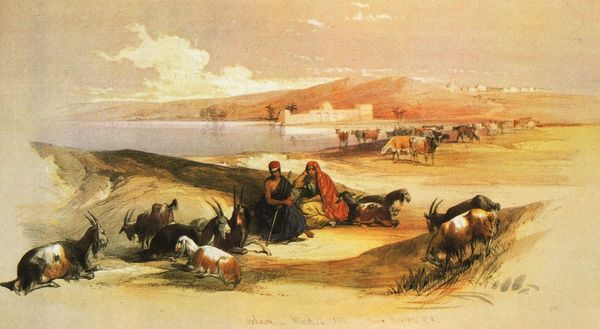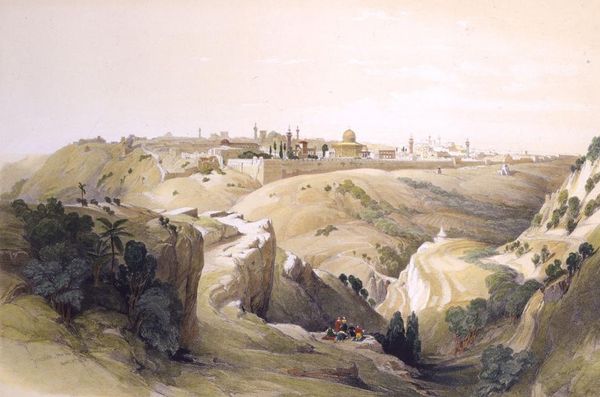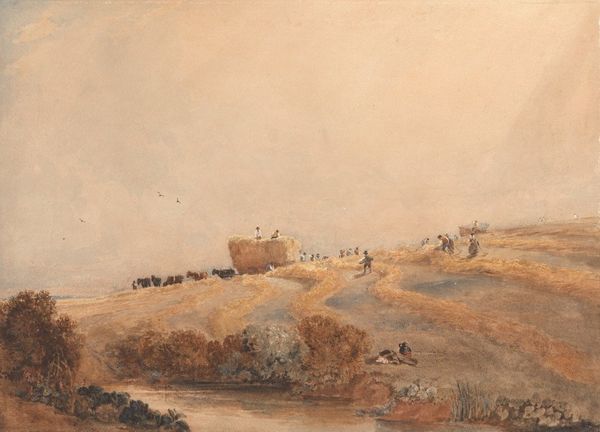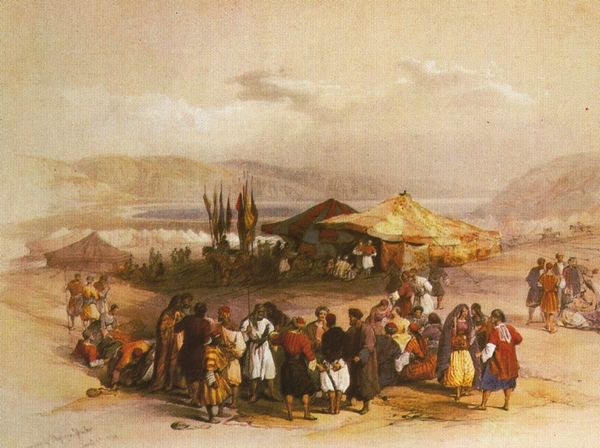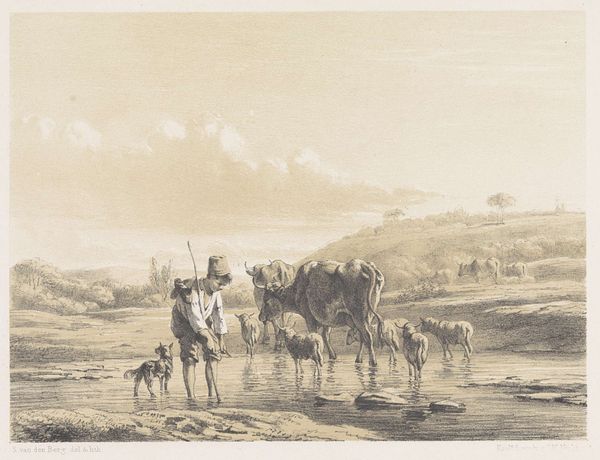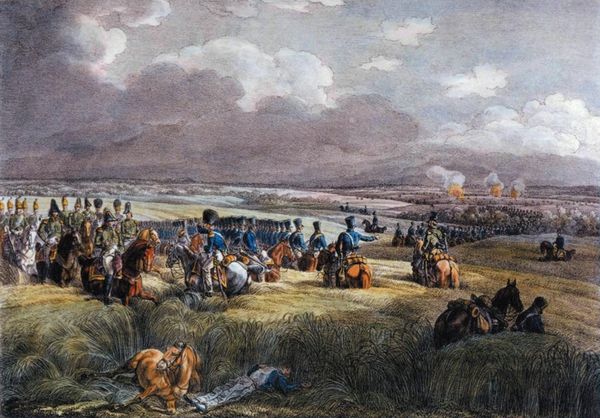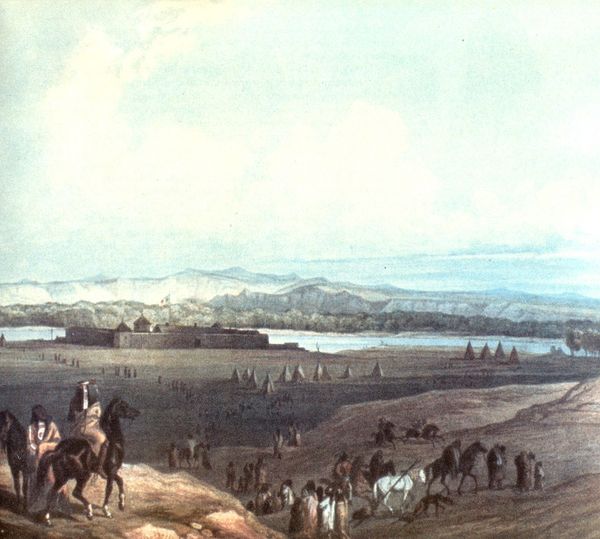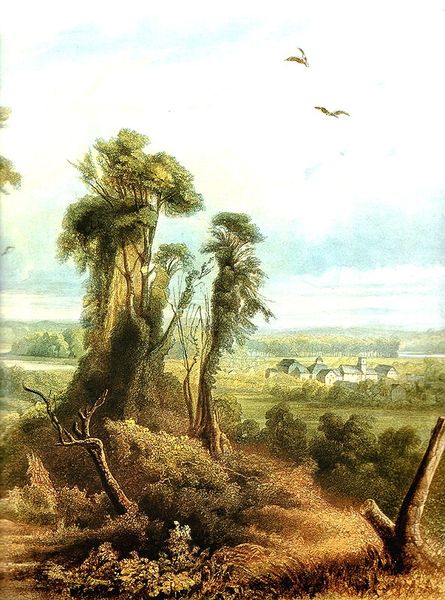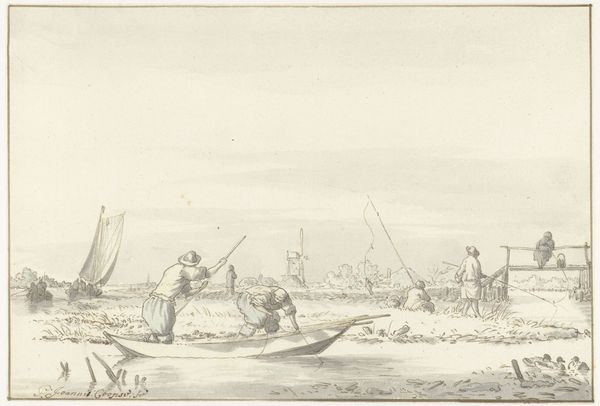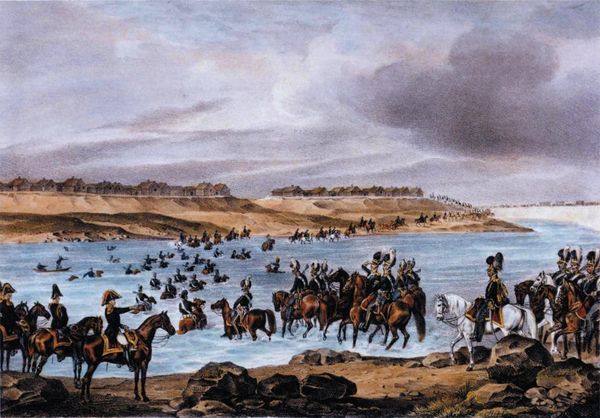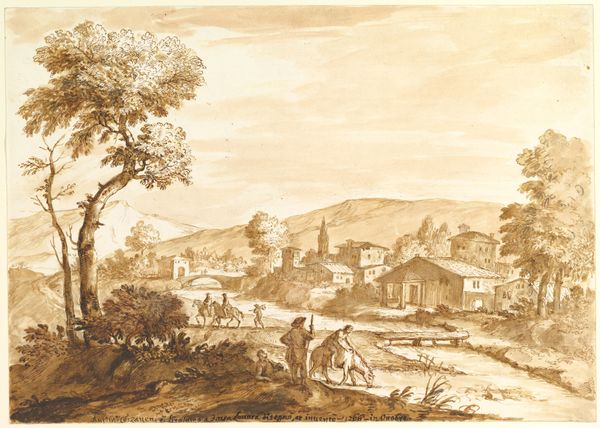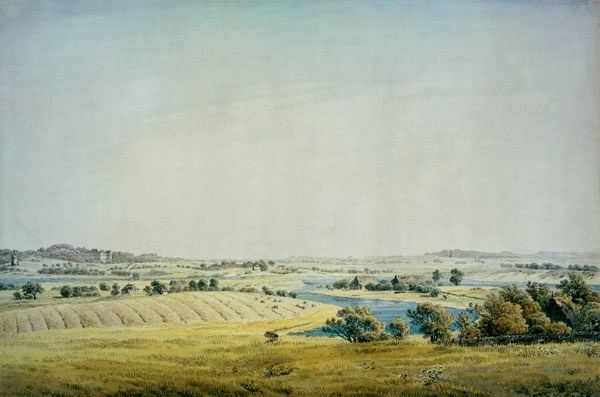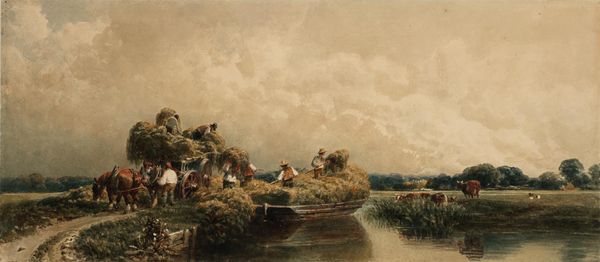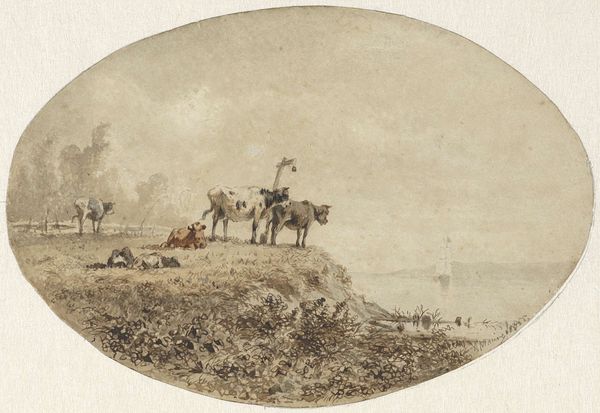
watercolor
#
landscape
#
watercolor
#
romanticism
#
orientalism
#
genre-painting
#
watercolor
Copyright: Public domain
Editor: This watercolor, "Ayn Mousa. The Wells of Moses," by David Roberts, evokes such a feeling of stillness and remoteness. What strikes me most is the composition – the way the artist places figures at various depths. What do you see in this piece, beyond the landscape genre? Curator: It’s crucial to understand Roberts’ work, particularly his Orientalist paintings, as deeply entangled with British colonialism and the romanticized, often distorted, perceptions of the “East.” While visually appealing, this idyllic scene essentializes the people, presenting them in ways that often served to legitimize colonial power structures. Editor: That’s a strong perspective. I was focused on the aesthetics of the scene. Can you explain further how the painting serves these power structures? Curator: Think about what is not shown – the struggles for resources, the imposition of Western norms, the very real violence that accompanied colonial expansion. The figures here are at leisure, by a resource, suggesting perhaps a biblical sense of access and prosperity – almost a promised land, when in reality, control of these spaces was fraught with tension and exploitation. Where does one locate these images within the grander scheme of imperial expansion and appropriation? Editor: So the act of romanticizing a place becomes, in itself, a political statement? Curator: Precisely! And how this fantasy world may be weaponized to dislodge entire groups from their land. By presenting a sanitized, passive vision, the artwork erases the agency and resistance of the indigenous population. Even the title, "The Wells of Moses," evokes religious authority and claims of ownership tied to colonial justification. Editor: That gives me a completely different way to understand the imagery. Thanks for sharing that important context. Curator: It’s vital that we look at these images critically and resist passive modes of interpretation. We must analyze how such romanticized orientalism perpetuates harmful stereotypes and justifies historical and ongoing oppression.
Comments
No comments
Be the first to comment and join the conversation on the ultimate creative platform.
